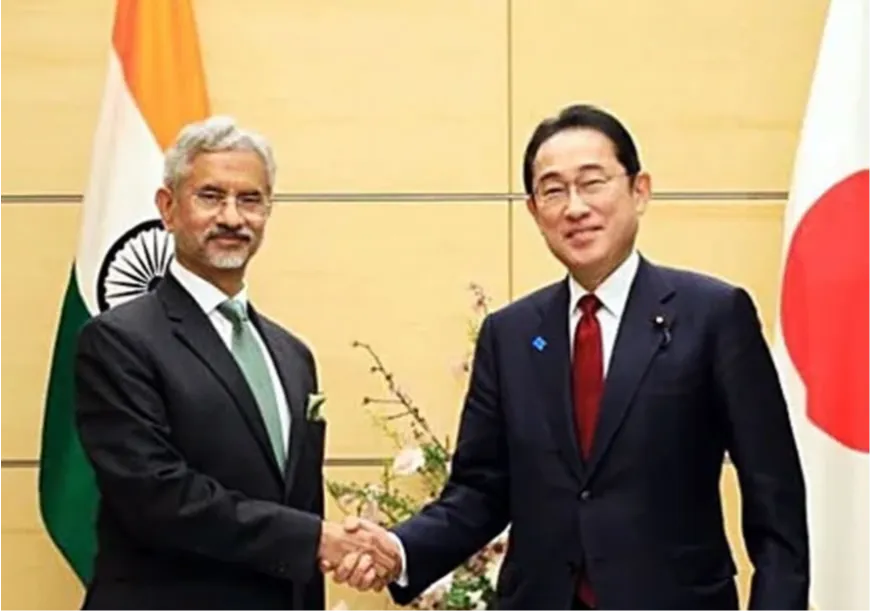During his back-to-back recent visits to Seoul and Tokyo, External Affairs Minister Dr. S. Jaishankar, set the tone and agenda for future cooperation with two of India’s major partners in the Indo-Pacific. The visit was part of the 10th India - Republic of Korea Joint Commission Meeting (JCM) where Jaishankar met with H.E. Mr. Cho Tae-yul, Minister of Foreign Affairs of the Republic of Korea, and the 16th India-Japan Foreign Ministers Strategic Dialogue where Jaishankar engaged in discussions with the Foreign Minister of Japan H.E. Ms. Yoko Kamikawa. Also on the agenda was participation in the first Raisina Roundtable@Tokyo organised jointly by the foreign ministries of India and Japan which brought together business leaders, think tanks, and academia, as part of Track II efforts to deepen bilateral ties and strengthen regional cooperation.
Key aspects of New Delhi’s partnership with Seoul include semiconductors, green hydrogen, nuclear capabilities, and critical and emerging technologies
While India’s ties with both Japan and South Korea have been important with the steady deepening of ties over the years, bilateral cooperation with both has witnessed a definitive upswing in recent years with an expansion in the scope of partnership with both countries which has gradually laid the foundations of a potential trilateral framework of cooperation among the three. Key aspects of New Delhi’s partnership with Seoul include semiconductors, green hydrogen, nuclear capabilities, and critical and emerging technologies. With Tokyo, the focus is on defence and digital technologies, clean energy, high-speed rail, industrial competitiveness, and connectivity. With both countries, semiconductors and supply chain resilience are common aspects of cooperation that New Delhi wants to build upon.
Japan and South Korea play pivotal roles in India's Indo-Pacific outreach, contributing significantly to the region's strategic landscape across various dimensions. Japan, as a longstanding economic partner, has been integral to India's economic development in critical aspects such as infrastructure development, technology transfer, and investments, contributing substantially to India's growth trajectory and aligning with its vision for sustainable development in the Indo-Pacific. Japan has been a key player in India's economic development, with a long-term focus on infrastructure projects. Both countries also share similar concerns about regional stability and advocate for a rules-based order. The Quad partnership, which includes Japan, aligns with India's broader outreach goals, emphasizing the importance of upholding international norms, ensuring freedom of navigation, addressing security challenges, and fostering economic growth. Japan's participation in the Quad strengthens the collective voice advocating for a free and open Indo-Pacific, reinforcing India's position in the region. Collaborative endeavors between the two in maritime security enhance India's capacity to address challenges in the Indian Ocean and strengthen the participation and efforts of New Delhi and Tokyo on multilateral platforms in the Indo-Pacific.
The Quad partnership, which includes Japan, aligns with India's broader outreach goals, emphasizing the importance of upholding international norms, ensuring freedom of navigation, addressing security challenges, and fostering economic growth.
South Korea, while not part of the Quad, holds strategic importance through its regional influence and diplomatic ties. Economic collaboration with South Korea, driven by its advanced technological capabilities, contributes significantly to India's economic and technological advancements in the Indo-Pacific. The "New Southern Policy" of South Korea, initiated in 2017, emphasizes enhancing ties with Southeast Asian nations and India, showcasing the growing importance of India in South Korea's regional engagement. Most importantly, with the adoption of its own Indo-Pacific strategy, Seoul has demonstrated its intent to partner with other democratic and like-minded countries in the region under the broad architecture of the Indo-Pacific narrative.
Arguably, the most significant takeaway from Jaishankar’s visits is the emphasis he placed on the building and developing of contemporary opportunities during his meetings in both Seoul and Tokyo. His focal point underscores a forward-looking approach that recognizes the rapidly evolving global landscape and the need for nations to proactively shape their trajectories. The emphasis on contemporary opportunities serves as a testament to India's commitment to adapting to emerging challenges and harnessing the potential for collaboration in key area indicating the positioning of India as a key player in the global arena, ready to capitalize on emerging trends and navigate the complexities of the 21st century. It underscores a commitment to innovation, technological collaboration, and a proactive approach in shaping the future trajectory of India's relations with South Korea and Japan.
The most significant takeaway from Jaishankar’s visits is the emphasis he placed on the building and developing of contemporary opportunities during his meetings in both Seoul and Tokyo.
Over the course of 2022 and 2023, Tokyo and Seoul have undertaken gradual and yet intentional measures to look beyond the difficulties that have strained their bilateral ties for decades. This strategic shift reflects a shared recognition to work more effectively with each other and also collectively respond to regional opportunities and concerns signifying a maturing of diplomatic relations. From India's perspective, this evolving synergy in East Asia holds immense significance as a more cohesive and cooperative East Asia translates to a more conducive environment for India to engage with both. Together with this strategic alignment opens the door for a revival of trilateral cooperation among the three countries, an idea that had originated first in 2011 but had thus far been dormant. As the geopolitical landscape in the Indo-Pacific continues to evolve, a New Delhi-Seoul-Tokyo trilateral collaboration provides a flexible and dynamic framework for adapting to emerging challenges and opportunities.
This commentary originally appeared in Hindustan Times.
The views expressed above belong to the author(s). ORF research and analyses now available on Telegram! Click here to access our curated content — blogs, longforms and interviews.




 PREV
PREV



